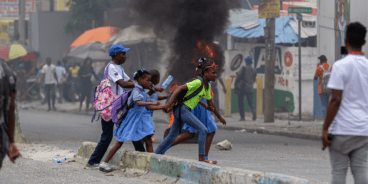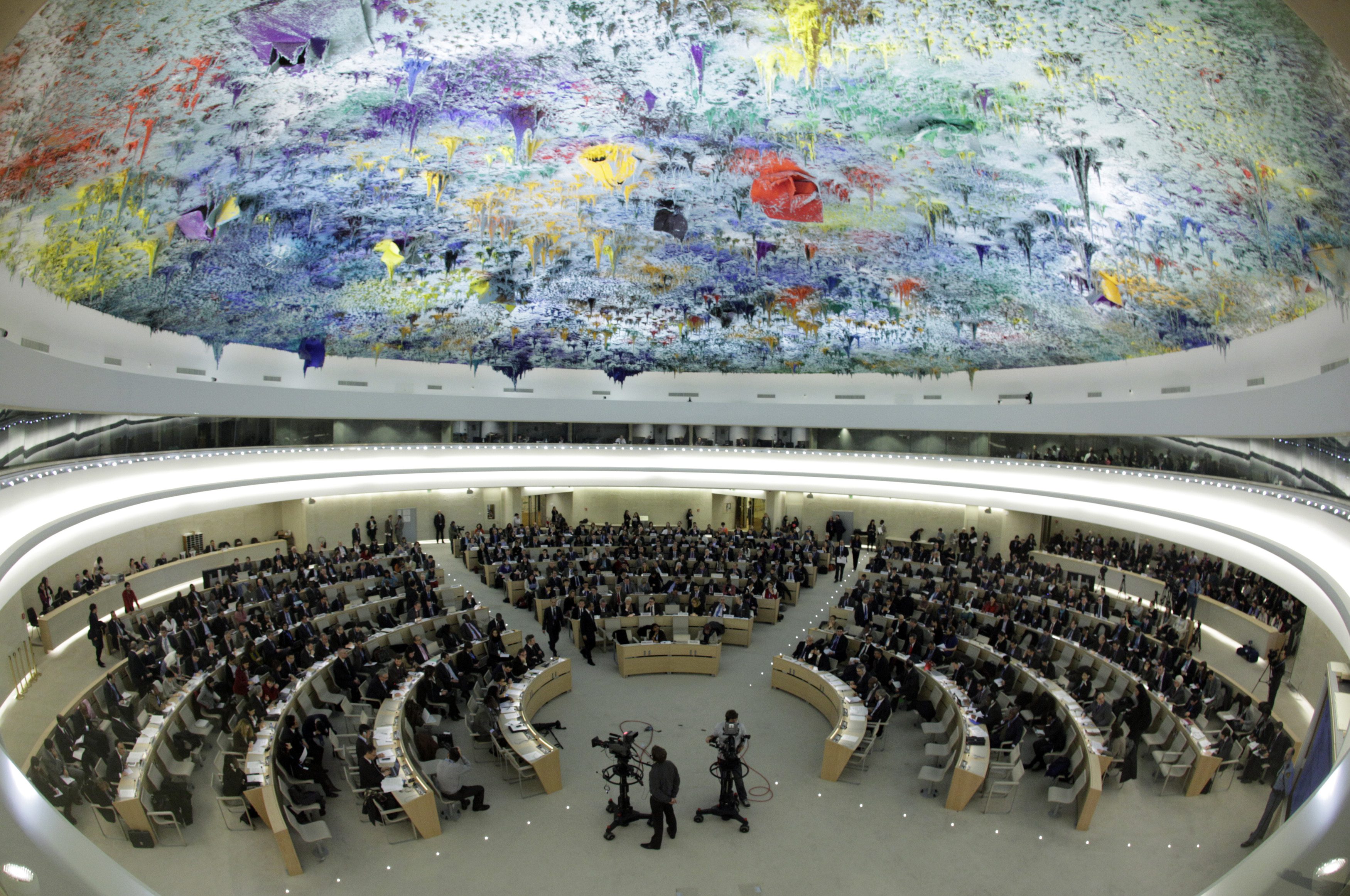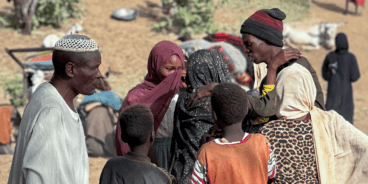

R2P and Outcomes of the Human Rights Council’s 41st Session
The 41st regular session of the Human Rights Council (HRC) was held in Geneva between 24 June and 12 July 2019. As the primary international human rights body, the Human Rights Council has the capacity to prevent and respond to mass atrocity crimes, as systematic violations and abuses of human rights can be potential indicators of genocide, war crimes, crimes against humanity or ethnic cleansing. The summary below highlights major outcomes and relevant dialogues from the 41st session as they relate to the Responsibility to Protect (R2P) populations from such crimes. As part of the session, the Netherlands and Rwanda delivered two statements on behalf of members of the Group of Friends of R2P.
RESOLUTIONS
A/HRC/41/L.15 Situation of human rights in Eritrea
The HRC, welcoming the report of the Special Rapporteur on the situation of human rights in Eritrea and her conclusions, requested the Office of the United Nations High Commissioner for Human Rights (OHCHR) to present an oral update to the HRC at its 43rd session on progress made in the cooperation between Eritrea and the Office, and on its impact on the situation of human rights in Eritrea. The HRC further decided to extend the mandate of the Special Rapporteur for one year and to continue to assess and report on the situation of human rights. The HRC further requested the Special Rapporteur to present an oral update on the situation to the HRC at its 43rd session during an interactive dialogue. The Special Rapporteur was also requested to present a report on implementation of its mandate to the HRC at its 44th session and to the General Assembly at its 75th session. Lastly, the HRC called upon the Government of Eritrea to cooperate fully with the Special Rapporteur, including by granting access to the country, and requested the Secretary-General to provide the Special Rapporteur with all the information and resources necessary to fulfil the mandate. The resolution was adopted by a vote of 21 in favour, 13 against and 13 abstentions.
A/HRC/41/L.16/Rev.1 Mandate renewal of the international team of experts on the Kasaï region
Taking note of the finding of the International Team of Experts that ethnic tensions in Kasaï remain high and the situation still requires vigilant attention, the HRC welcomed the continued cooperation of the Government of the Democratic Republic of the Congo (DRC) with the Team of Experts, in particular by facilitating access to the country. The HRC requested the government continue full implementation of the recommendations made by the Team of Experts, in particular those relating to the fight against impunity and the promotion of reconciliation. The HRC decided to renew the mandate of the International Team of Experts and requested it submit its final report to the Council at its 45th session, as well as an oral update at its 43rd session. The HRC further requested OHCHR to provide the Government of the DRC with technical assistance, including necessary forensic expertise, to support the country’s judicial authorities in their investigations into allegations of human rights violations so that perpetrators are brought to justice. The resolution was adopted without a vote.
A/HRC/41/L.20 Promotion and protection of human rights in the Philippines
The HRC expressed concern at the allegations of human rights violations in the Philippines, particularly those involving killings, enforced disappearances, arbitrary arrest and detention and others. The HRC recalled that since the campaign against illegal drugs was announced in the Philippines in mid-2016, there have been allegations of the killing of thousands of people allegedly involved in the drug trade and drug use. The HRC further expressed deep concern about allegations of threats, intimidation and personal attacks directed against special procedure mandate holders. The HRC urged the government to take all necessary measures to prevent extrajudicial killings and enforced disappearances, to carry out impartial investigations and to hold perpetrators accountable, in accordance with international norms and standards, including on due process and the rule of law. The HRC called upon the government to cooperate with OHCHR and the mechanisms of the HRC, including by facilitating country visits and preventing and refraining from all acts of intimidation or retaliation. Lastly, the HRC requested the High Commissioner to prepare a comprehensive written report on the situation of human rights in the Philippines and to present it to the HRC at its 44th session. The resolution was adopted by a vote of 18 in favour, 14 against and 15 abstentions.
A/HRC/41/L.25 The human rights situation in the Syrian Arab Republic
Recalling the statements made by the Secretary-General and the High Commissioner for Human Rights that crimes against humanity and war crimes are likely to have been committed in the Syrian Arab Republic, the HRC expressed its deepest concern at the findings of the Independent International Commission of Inquiry on the Syrian Arab Republic (CoI) and deplored the lack of cooperation by the Syrian authorities with the CoI. The HRC demanded that the Syrian authorities cooperate fully with the HRC and the CoI by granting the CoI immediate, full and unfettered access throughout the country. Further, the HRC urged all the relevant parties, including the signatories to the memorandum on the stabilization of the situation in the Idlib de-escalation area of 17 September 2018, to respect and uphold the ceasefire in Idlib. The HRC further noted the findings by the CoI that sexual and gender-based violence were committed by Syrian authorities and associated militia, as well as by so-called Islamic State in Iraq and the Levant, and that they represent a widespread and systematic attack directed against the civilian population, amounting to crimes against humanity, and that such acts constitute the war crimes of rape and other forms of sexual violence. The HRC further strongly condemned the damage and destruction of the cultural heritage within Syria and recalled that deliberate attacks on cultural heritage may amount to war crimes. The resolution was adopted by a vote of 26 in favour, 7 against and 14 abstentions. The resolution “demanded that the Syrian authorities meet their responsibility to protect the Syrian population and to respect, protect and fulfil the human rights of all persons within its jurisdiction.”
INTERACTIVE DIALOGUES, DEBATES AND UNIVERSAL PERIODIC REVIEWS RELEVANT TO R2P:
Country-specific
- Interactive Dialogue with the Special Rapporteur on the situation of human rights in Eritrea
- Interactive Dialogue with the Independent International Commission of Inquiry on the Syrian Arab Republic
- Interactive Dialogue with the Independent International Commission of Inquiry on Burundi
- Interactive Dialogue with the Special Rapporteur on the situation of human rights in Myanmar
- Enhanced Interactive Dialogue on Venezuela
- Enhanced Interactive Dialogue on the Sudan
- Enhanced Interactive Dialogue on the Democratic Republic of the Congo
- Interactive Dialogue with the Independent Expert on the Central African Republic
- Outcomes of the Universal Periodic Review of Afghanistan, Eritrea and Yemen
Thematic
- General Debate on the update of the High Commissioner for Human Rights
- Interactive Dialogue with the Special Rapporteur on violence against women
- Presentation of thematic reports by the Secretary-General and High Commissioner
- General Debate on human rights situations that require the Council’s attention
ESTABLISHMENT AND EXTENSION OF COMMISSIONS OF INQUIRY AND SPECIAL PROCEDURES
The HRC extended the mandate of the Special Rapporteur on the situation of human rights in Eritrea for a period of one year.
The HRC also extended the mandate of the international team of experts on the Kasaï region for a period of one year.
Related Publications


Atrocity Alert No. 435: Sudan, Israel and the Occupied Palestinian Territory and Democratic Republic of the Congo
